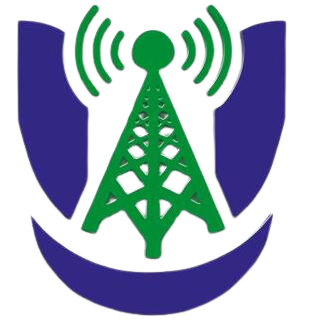About Us
Universal Access is a mandate of the ITU from a WTO recommendation to all member states of the UN as the most feasible means of bridging the digital divide which exists between rural and urban communities. The Telecommunications Law of 2007 mandates the LTA to implement the universal access program.
The majority of our poor people live in rural communities and the Pro Poor Agenda of national government targets to impact positively on the lives of these people.
Objective
Our objective is to manage and fund the provision of telephone and broadband services to the community centers of the rural areas as well as to schools and medical centers in these rural communities
Telecommunications service providers like any business entities have concentrated their operations and major investments mainly in major urban areas where they can maximize their profits. This has left several rural communities unserved and underserved for the most part. The LTA has no tool to compel the provision of service to these unserved and underserved communities since the communities lack the profit potential to justify business investment when the service providers have been charged fees for licenses and spectrum usage.
- Board Members
- Roles & Responsibilities
- Implementation Unit
- Project Implementation Unit
- History
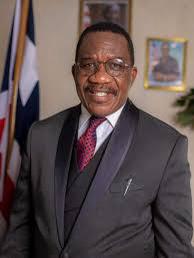 Hon. Cllr. Cooper W. Kruah (Chairman)
Hon. Cllr. Cooper W. Kruah (Chairman)
Hon. Cllr. Cooper W. Kruah is an astute legal practitioner and one of Liberia’s finest legal experts. He is the Minister of Post & Telecommunications and as the sector head he is the Chairman of the UAF Governing Board and presides over board meetings. He have over 30 years of legal and administrative experience and his expertise is brought to bed in the areas of leadership, administration and law.
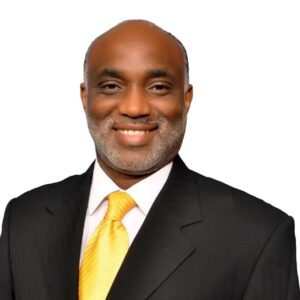 Israel Montgomery AKINSANYA ( Secretary General ),
Israel Montgomery AKINSANYA ( Secretary General ),
Isarel is a businessman and a consummate professional with over 18 years in the telecommunications sector. He is one of five commissioner of the LTA Board of Commissioners and the representative of the Liberia Telecommunication Authority (LTA) on the UAF BOARD; making him the Secretary of the UAF Board. He is currently serving his second term as commissioner of the LTA and the UAF Board. At the LTA, he is the commissioner responsible for Government, Consumer Affairs and Universal Access.
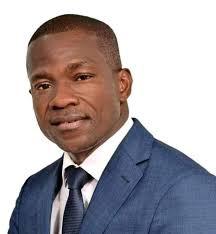
Mustapha RAJI (Member)
A telecommunication expert by trade, Mustapha RAJI currently serves as Radio Access and Network (RAN) Manager at Orange Liberia, a position he has served for the past 15 years. He serves on the UAF board representing Orange Liberia and is currently serving his second term. Mr. Raji is also the President of the Liberia Football Association (LFA).
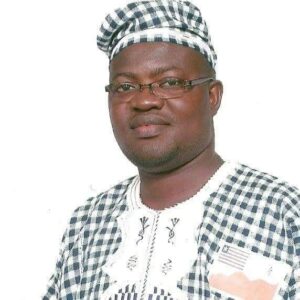 Hon. Augustus J. Flomo (Member)
Hon. Augustus J. Flomo (Member)
Hon. Augustus is a member of the Universal Access Fund Governing Board representing the Ministry of Finance Development Planning. Hon. Augustus J. Flomo works for the Government of Liberia as the Deputy Minister for Economic Management at the Ministry of Finance and Development Planning. His position covers managing the Aid Portfolio, Debt (domestics and external), Macroeconomic and Financial Policies of the government of Liberia. He has over 18 years experience in Economic Analysis, Fiscal Management & Accounting, Leadership, Training, Business Development and has actively participated in the political landscape of Liberia before his appointment to government in March 2018.
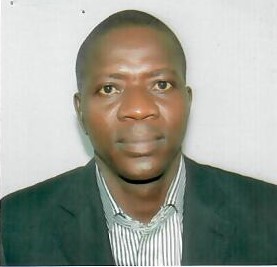
Hon. Losine N. Sanyon (Member)
Hon Losine N. Sanyon is a Lawyer and an Administrator by training. Hon.Sanyon is Member of the Governing Board of the Universal Access Fund, representing the Ministry of Internal Affairs (MIA). Hon. Sanyon currently serves as the Assistant Minister for Technical Services at MIA. He comes on UAF Governing Board with 14 years of experience and has been on the board since 2018 and currently serving his second term.
Primary role and responsibilities:
As defined in the UAF Regulations, the Governing Board is the formal governing authority for the UAF, responsible for approving the “high level vision and agenda for achieving the provision of Universal Access in Liberia”. The Board has oversight and approval responsibility for the UAF’s budget and planning, and for review of monitoring and evaluation reports.
Key functions:
Specific functions and activities that the Board must undertake to fulfil its role include the following. Further details of these functions are defined in the relevant sections of this Operations Manual.
- Provide high-level guidance to Implementation Committee on development of UAF Strategic Plan, including overall vision and objectives for activities and outcomes; review and approve final Strategic Plan.
- Review and approve the recommendations of the Committee on scope of services and geographic areas that are un-served and under-served.
- Review and approve Annual UAF Workplan and Budget (“Budget”) as submitted by the Implementation Committee; focused on ensuring consistency with the Strategic Plan and with ICT sector policies.
- After review and approval, submit the Budget developed by the Implementation Committee to the Minister of Finance for inclusion in the annual budget of the Executive for approval by the National Legislature.
- Appoint and oversee a firm of independent auditors;
- Review and approve the quarterly Monitoring and Evaluation Report submitted by the Implementation Committee.
- Review and approve the UAF Annual Report, submitted by the Implementation Committee.
- Participate, as appropriate, in public events and stakeholder forums involving UAF activities and policy, to support visibility and publicity of the Fund’s accomplishments and objectives.
Primary role and responsibilities:
The role of the Implementation Committee is to serve as the main management body for the UAF, with direct oversight responsibility for the development and implementation of UAF related plans, programs, and projects, as well as financial management and stakeholder relations.
Key functions:
The main functions of the Implementation Committee are as identified below, with particular attention to the Committee’s reporting obligations to the Board. Any or all Committee functions may be delegated to or assisted by the Project Implementation Unit, as the technical and operational arm of the Committee. Further details of these functions are provided under the PIU section and in subsequent sections of this Operations Manual.
- Develop the UAF Strategic Plan, including proposed priority UAF objectives and programs, scope of services and determination of geographic areas that are un-served and under-served, with guidance from and for approval by the Board.
- Prepare the UAF Annual Work Plan and Budget, including proposed projects and disbursements to be undertaken during the operating year, subject to Board review and approval.
- Approve a standard format for the quarterly Monitoring and Evaluation Report for use by the PIU. Provide input to, review and approve the quarterly Monitoring and Evaluation Report prepared by the PIU. Submit the report quarterly to the Governing Board for approval.
- Prepare and submit the UAF Annual Report, based upon the quarterly Monitoring and Evaluation Reports, for Board review and approval and public dissemination.
- Appoint, manage, and oversee all the functions and responsibilities of the Project Implementation Unit.
- Provide guidance to the PIU on methodologies and tools for research and analysis to identify un-served and under-served areas suitable for UA funding.
- Provide guidance to the PIU on the frequency that project assessments shall be undertaken.
- Review, approve, and oversee all aspects of UA projects and contract development and implementation, as undertaken by the PIU.
Primary role and responsibilities:
The role of the PIU is to undertake the day-to-day implementation tasks necessary to accomplish the UAF’s objectives and to ensure effective and flexible coordination and implementation of the UA projects under the management of the Implementation Committee. These include full-time activities that address all of the main UAF related functions as identified below. The PIU shall report directly to the Implementation Committee, and prepare reports, documents, and advisory inputs as directed by the Implementation Committee, and act as the functional arm of the Implementation Committee in all substantive matters involving the UAF.
The personnel to be assigned to the PIU will be determined by the Implementation Committee, after consultation with the Governing Board, and should be sufficient for the PIUto carry out the range of pertinent tasks and responsibilities as listed below utilizing internal or externalresources:
- Project Coordination
- Market Research
- Legal
- Procurement
- Monitoring and Evaluation
- Finance and Accounting
- Administrative Support.
Key functions:
The PIU shall carry out most of the operational functions required to implement the UAF’s mandate and objectives, as further elaborated in the subsequent sections of this Operations Manual. The specific tasks required for each functional area should be assigned to appropriate personnel, including outside support as necessary, to ensure both reasonable allocation of resources and efficient completion of all UAF related responsibilities. The main functions that the PIU shall undertake include the following:
- Collect data and conduct market research in support of UAF planning and project development, and maintain updated awareness of the status of Universal Access in Liberia.
- Undertake research and analysis, for example surveys and geographical information system (GIS) mapping, to identify un-served and under-served areas suitable for UA funding, following instructions and guidance provided by the Committee.
- Provide research and analytical input to the UAF Strategic Plan, and prepare drafts of the Plan for review and approval by the Implementation Committee, and subsequent submission by the Implementation Committeeto the Board.
- Prepare drafts of the Annual Workplan and Budget, including analysis of market conditions, forecasts of UAF budgets, and proposed projects to be implemented in accordance with Strategic Plan targets; submit for review and approval by the Implementation Committee, and subsequent submission by the Committee to the Board.
- Conduct stakeholder consultations for all major UAF related activitiesin cooperation with the LTA, to ensure adequate communication with and input from key public and private sector stakeholders, in accordance with procedures and principles described herein.
- Develop UA project designs and issue tender documents consistent with the approved annual plans, taking account of inputs from consultations and including all technical requirements and related elements to be delivered by successful bidders.
- Manage all aspects of the competitive procurement processes to select UA project contractors, consistent with Liberian procurement legislationand regulations, and the principles described herein.
- Subjectto approval by the Implementation Committee, prepare project award documents and draft contracts for UA project bid winners consistent with the UAF Regulations and the Public Procurement and Concessions Act of Liberia.
- Undertake ongoing monitoring and evaluation of all UA project contracts, including verification of project progress and related disbursements from the Fund, review of and response to compliance issues, monitoring of results and impact of each project and any corrective actions required for implementation. Prepare quarterly Monitoring and Evaluation Reports for review by the Implementation Committee and subsequent submission to the Board.
Content loading please wait …
The LTA has already established the instruments to govern the program and are in the final stages of completing the deployment of its rural telephony program. The program will subsidize the erection of low cost communications towers that will implement 2G services. The program is to be funded through levies from service providers, international donors and contribution from government.
With the rollout of the universal access program there is going to be a tremendous boost in the growth of our poor people of rural Liberia through agriculture, health and education. The universal access program is also going to enable rural dwellers to call an ambulance readily without having to walk several hours to get access to network before doing so.
With the rollout of the universal access government programs of e-government, e-commerce, e-health, etc. will begin to get actualized.
